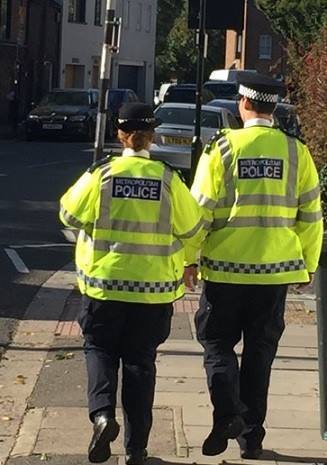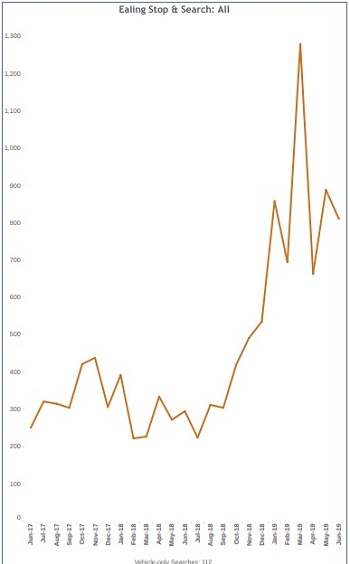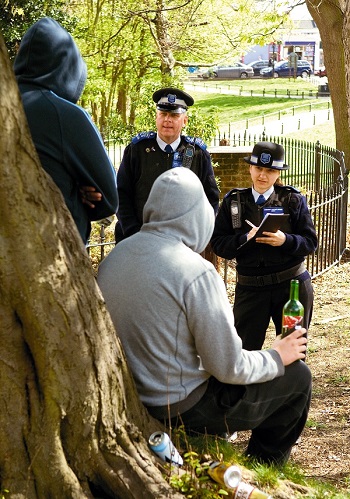Knife Crime Sparks Steep Rise in Stop and Search in Ealing
Since January 550 people have been arrested and 95 weapons found

(Police Patrol : Met Police)
|
Rising concern over knife crime has seen the numbers of police stop and searches carried out in Ealing sharply increase.
Since the start of this year, 95 bladed weapons have been discovered using this method. In that period, more than 5,000 stop and searches were conducted, resulting in 550 arrests, 149 penalty notices, and 97 summons to court being issued.
The numbers reached a climax in March 2019, with 1,278 people stopped, and although numbers have fallen since, the overall trend is for police to be using the technique more and more.
Since June 2017 more than 11,500 searches have been conducted throughout the borough.
According to police data, 17% of all stop and searches were conducted in search of knives and other bladed weapons.
Last year, Ealing was ranked in 15th place for knife crime offences compared to all 33 London boroughs.

(Police data shows the rates of stop and search in Ealing since June 2017: Met Police )

( Met police stop and search generic:pic credit Ealing Council)
Since then police in the area in the form of the the Western Area Basic Command Unit, has attempted to target knife carriers with specialist officers operating under the banner of Operation Wolverine.
Inspector Dan Thompson, who leads Operation Wolverine, said since its creation in November, the team has conducted more than 1,500 intelligence-led stop and searches.
Mr Thompson said they have removed more than 30 knives off the street as well as a large amount of criminal assets including money, drugs and vehicles.
Inspector Leigh Ballard, who runs the West Area Safer Neighbourhoods team, said other initiatives including deployment of the Violent Crime Task Force, as well as continued high-visibility patrolling are being used.
A report tabled at the June 6 Overview and Scrutiny Panel noted the highest number of offences occurred in October, most likely due to shorter days and events such as Halloween, Bonfire Night, and Diwali.
Fewer offences occurred during July and August, which was attributed to young people being out of school and spending less time together.
The Review Panel recommended The Stop and Search Community Monitoring Group should consider linking with other youth organisations to raise awareness of their initiative.
Ged Cann Local Democracy Reporter
24 July 2019